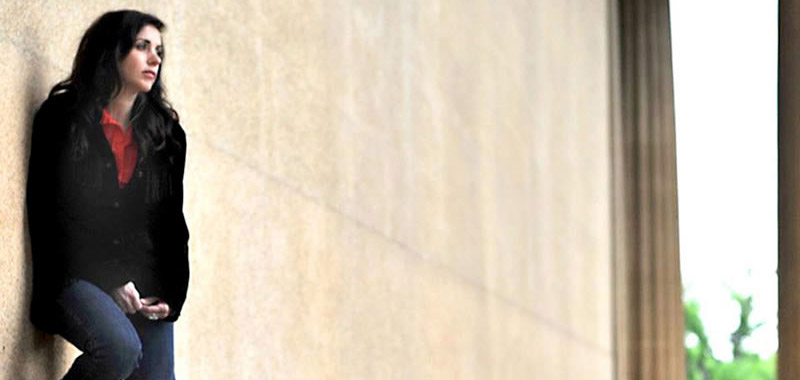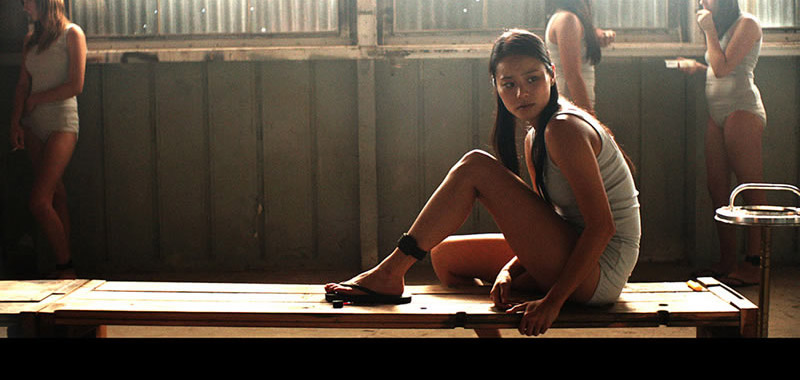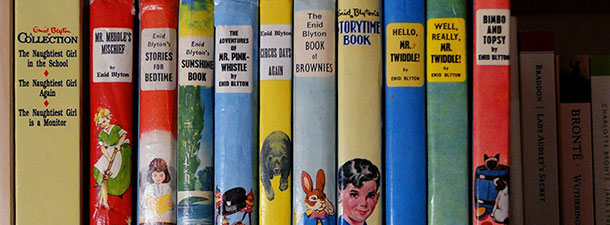
Rock Divas
Ottobre 1, 2013
A Woman’s Place is on the Front Line: The Evolution of Female Combat Soldiers
Ottobre 1, 2013There are more individuals enslaved today than there were at the height of the transatlantic slave trade. This includes humans trafficked for sex and for different forms of labour. It is estimated that in the US alone some 100,000 children are trafficked in the sex trade in any given year. Hundreds of thousands of people are enslaved in the US and, it is estimated, almost 21 million women, children, and men are trafficked around the world. And yet, it remains mostly an invisible phenomenon, perceived as taking place in remote, dark corners of the globe. Director Megan Griffith’s new film Eden – based loosely on the true story of American trafficking survivor Chong Kim – brings light to those dark corners that are very, very close to home.
Eden is a deliberately ironic title choice for a stark, new independent American film, set inside the underground human trafficking and sex slavery industry. This global criminal enterprise, according to the United Nations latest report on the subject, claims more than twenty million victims worldwide from 136 nations, held captive and submitted to forced sexual and other labour in 118 countries. A majority of the victims are women; just as grimly, at least 27 percent of human trafficking victims are children.
Eden breathes life into these shocking statistics. The film takes us to hell in one of the unseen gulags where the modern day slave trade flourishes, primarily from the viewpoint of a young woman, Hyun Jae. She endures its routine dehumanisation and degradation and is re-christened Eden by her captors. African war zones, impoverished corners of the Balkans, the smuggling routes of Asia – all of them prime hunting grounds and hidden highways for wretched human contraband – do not figure in Eden. Nor do the opulent sheikdoms of the Persian Gulf, the deluxe market and one of the prime consumers of traded human lives, appear except by name. Instead Eden takes place in the Nevada desert. It depicts the sordid pipeline that feeds enslaved women into a decidedly unglamorous Las Vegas underworld of forced prostitution. The chief protagonist and namesake of the film, is a Korean-American teenager who, during her two year ordeal as a prisoner, undergoes a profound transformation from a naïve, young, braces-wearing girl into a hardened, self-reliant and worldly woman, able to do what is necessary to survive and ultimately escape her circumstances. But Eden is no ordinary fictional victimised ingénue; she is drawn from bona fide experience – based on the odyssey of Chong Kim, the living Korean- American woman whose life story as a survivor of human trafficking inspired the screenplay.
That Eden begins in humdrum Las Cruces, New Mexico – as ordinary a town as one will find in the American Southwest – where Hyun Jae is snatched and disappears from her equally ordinary existence living in a trailer park and helping in her hard-working immigrant parents’ shop, speaks to the sadly common-place nature of human trafficking. The genuine, contemporary slave trade is a far-reaching reality and seldom just the province of exotic fictional cinema thrillers like Taken where model beautiful trafficked women are sold for princely sums to evil, billionaire potentates against a backdrop of luxury yachts and Monte Carlo hotels, with the whole affair never entirely losing an aesthetic appeal or even titillation for the viewer, despite the topic’s harshness.
The truth away from Hollywood is much dirtier, more brutal and quotidian. Eden is decidedly non-Tinseltown. At times its treatment of human trafficking has an almost-documentary feel. Rather than the tastefully appointed lairs of the super-rich, the film takes us instead to a dingy, corrugated metal warehouse in the desert that is, to all intents and purposes, a concentration camp for kidnapped young women destined for the sex trade. Hyun Jae, like her fellow inmates, is processed not unlike a prisoner of war, made to adhere to a strict code of discipline enforced by violence, where the penalty for escape is retribution against her family. Both drugged and terrorised into submission, she is then routinely forced to perform as a sex worker, in sado-masochist porn films and as a prostitute for hire – always with an enforcer nearby. The venues for her degradation vary and they include such seemingly innocuous settings as the heart of suburbia or college fraternity parties – a further reminder that sex trafficking is a far closer presence in our seemingly civilised existence than anyone would wish to consider. In time, Hyun Jae’s administrative skills, learned in her parents’ shop, allow her to gain a position of trust and responsibility within the criminal syndicate, which director Megan Griffiths portrays as a nexus between an organised crime gang and corrupt law enforcement.
Veteran actor Beau Bridges puts in an excellent turn onscreen as the dirty and murderous US Marshal, leading a double existence as a lawman and slaver kingpin. It is an understated performance that addresses the banality of evil in an accessible and terrifying way. On the surface Bridges’ Marshal Bob is a stock character, an expert criminologist, ironically enough an authority on smuggling, who is a devoted family man, an animal lover and enjoys the simple pleasures to be had going fishing. He is as common a Western man with a badge as the cowboy hat he wears, more a Bowling- Alley Joe than Wyatt Earp. Nevertheless a deep cruelty and a propensity for easy violence run through him.
Here too, Eden is a portrait in grey, conveying another uncomfortable truth about the sordid trade in human beings. No matter how loathsome a business, it is – cold-bloodedly – just that: a lucrative business, where the temptations for predators and the otherwise morally flexible are too great and which, like all arms and narco-trafficking networks they are also often a part of, could not function as effectively without the direct participation of the police and other co-opted players on the take.
At no point do we perceive Hyun Jae’s complicity in working for the gang as going over to the dark side. Her spare portrayal by actress Jamie Chung transmits a visceral humanity. We understand Hyun Jae is merely doing what is required for her survival, waiting for her window to escape when the circumstances permit. In this respect Eden is not just a film about captivity, it joins a long line of films about surviving and escaping horror against seemingly impossible odds. And Hyun Jae does make her getaway, overcoming her constant overseer, a junkie crackhead and former soldier called Vaughn (played capably by Matt O’Leary), whose nature is differently but as equally deformed as that of his mentor, Bob. Vaughn, like all the other criminals depicted in this film, is an odious figure, utterly lacking in compassion. He is not a charismatic rogue. He is a fractured human being who breaks the spirit and joy of others for a living. When Hyun Jae is finally able to liberate herself and free her closest companion, we do not mourn Vaughn or Bob, or the gangster who had originally kidnapped Hyun Jae. They are not worthy of our empathy when we have witnessed their many cruelties.
The film’s conclusion comes as a relief. Hyun Jae has broken free of such inhumane bondage, but hers is a quiet victory, not an ecstatic cinematic triumph. It is made more poignant by the knowledge that her tale is authentic. And this knowledge weighs on the mind long after the film – the certainty that Hyun Jae in the true-life story of Kim Chong, is but one that got away. So many other real women remain in the darkness with little hope of escape, leading a bestial and torturous existence in soul and body which no human being should have to endure. In having portrayed a glimpse of the terror, atrocity and injustice of human trafficking and the clandestine sex slavery of women with compassion, realism and the absence of sensationalism, Eden is an important film. Its importance lies in its being not just a feminist story, but a human one, which calls for far greater awareness and action to end what constitutes one of the most despicable aspects of human behaviour in a so-called civilised world.
[info]
For more information about human trafficking and action you can take to help victims and fight for a world without slavery, go to www.polarisproject.org
[/info]




